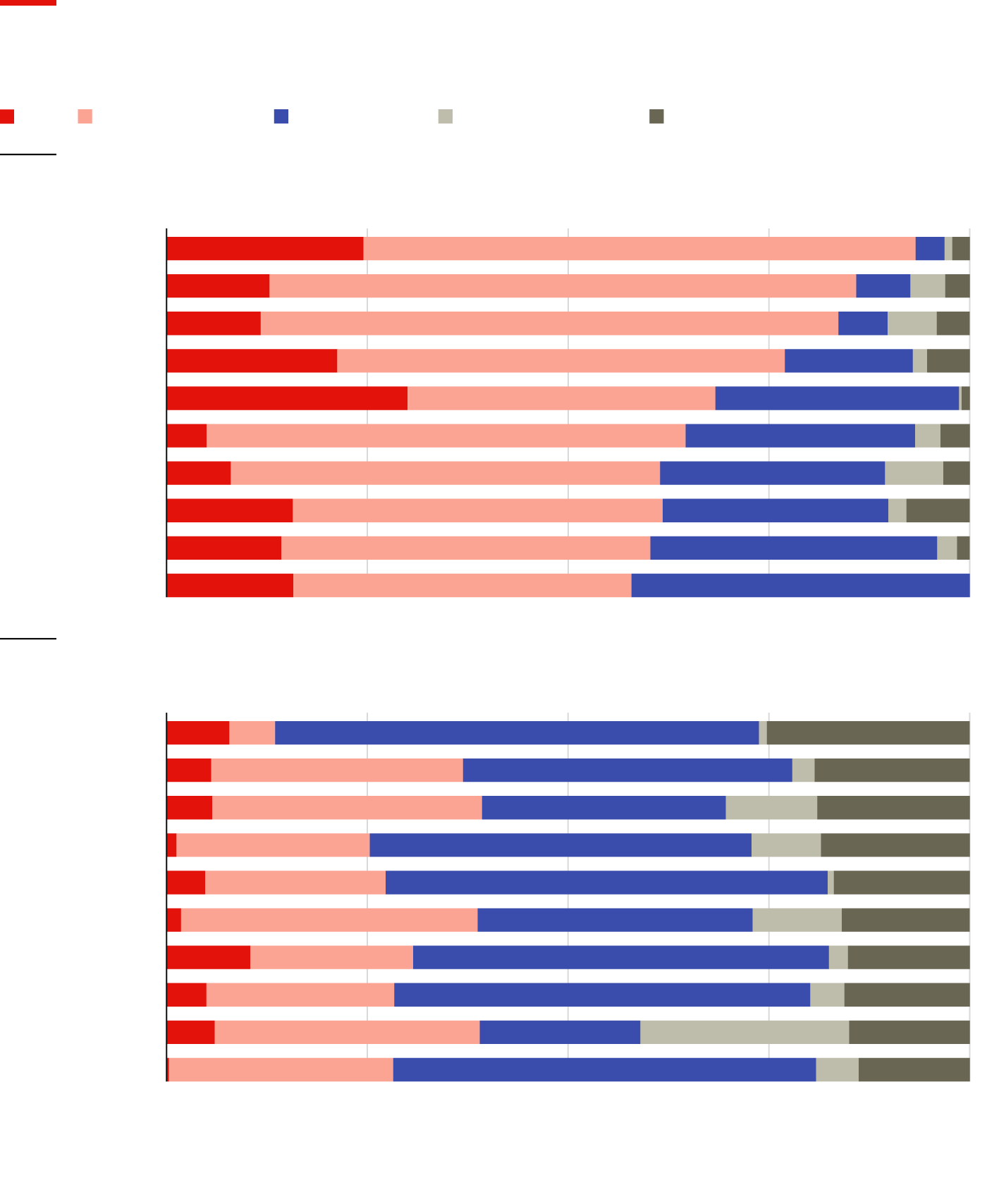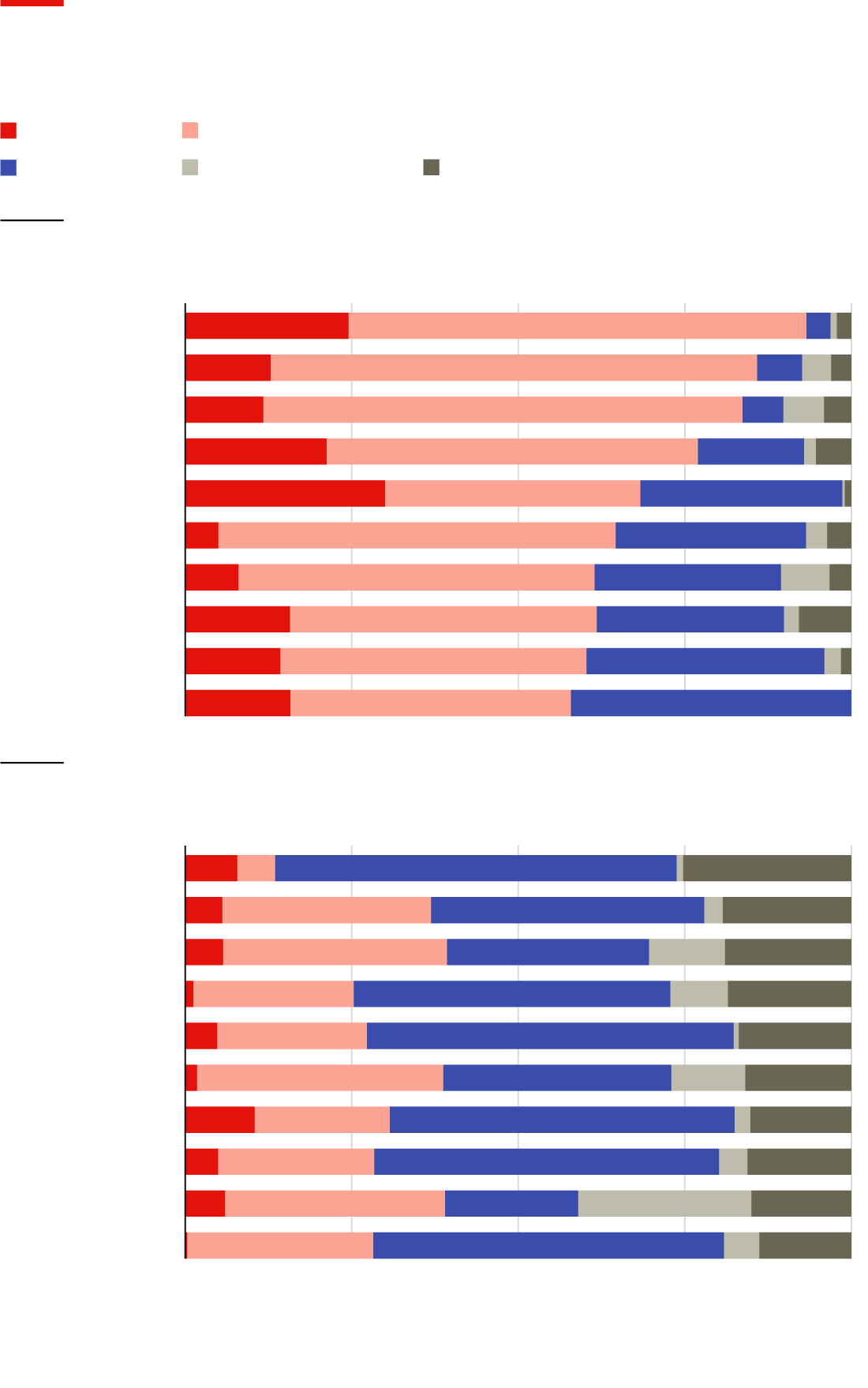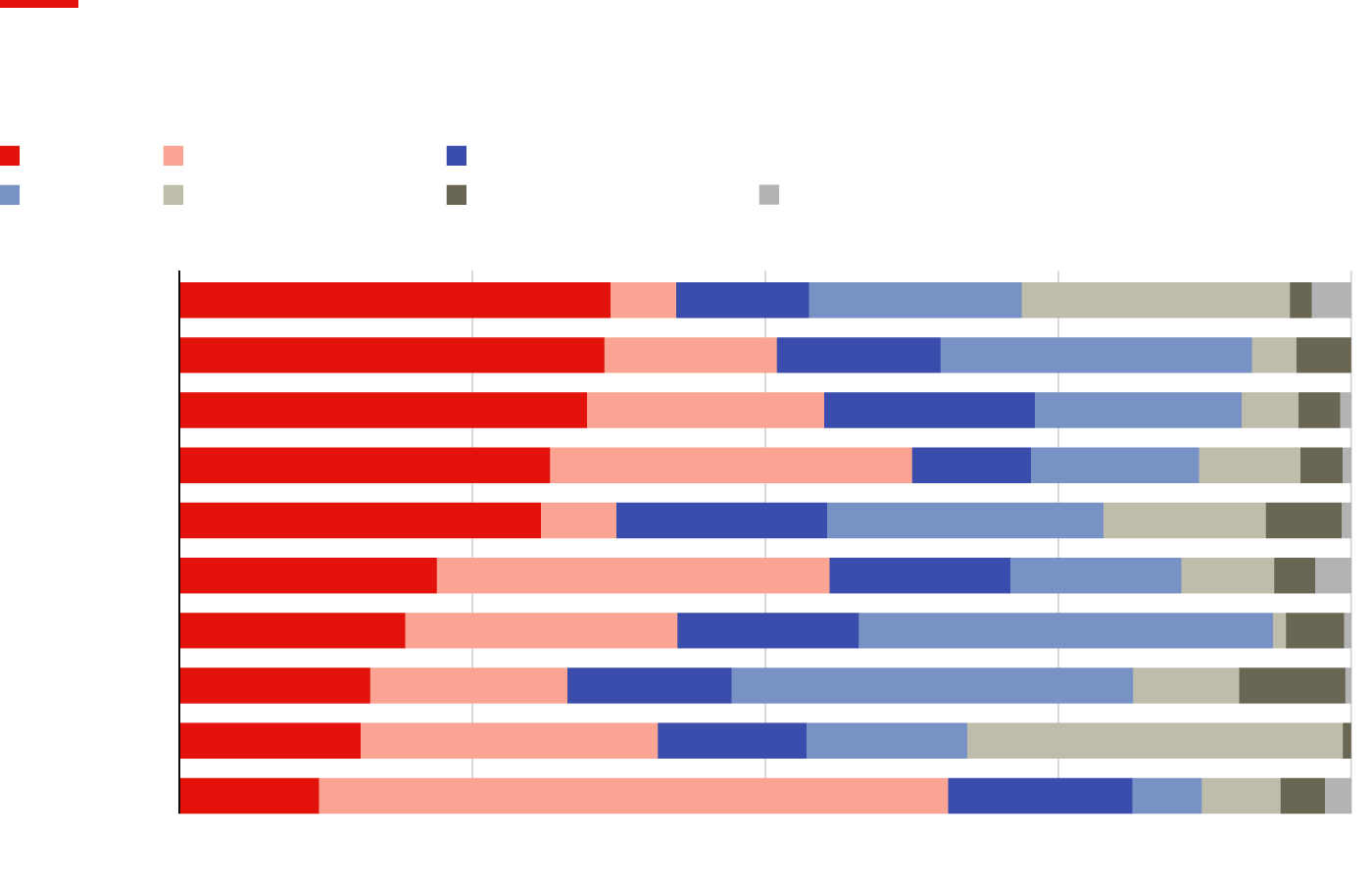Which countries have the most-educated politicians?
American lawmakers have lofty credentials, but not necessarily more skills

Doctors in the house
Highest qualification obtained by elected lawmakers, 2015-17*
Other postgraduate
Undergraduate
Some post-secondary
Secondary or less
PhD
Highest share with postgraduate education, %
0
25
50
75
100
1 Ukraine
2 Poland
3 Czech Republic
4 Taiwan
5 South Korea
6 United States
7 Ghana
8 Slovenia
9 Romania
10 Mongolia
Highest share with secondary-school education or less, %
0
25
50
75
100
1 Italy
2 India
3 Tanzania
4 Norway
5 Britain
6 Bangladesh
7 Brazil
8 Australia
9 Namibia
10 Pakistan
*56 countries with over 2m pop and more than 90% of legislators responding;
where legislatures have two chambers, includes only members of the lower house
Source: Global Legislators Database, by Nick Carnes et al.

Doctors in the house
Highest qualification obtained by elected lawmakers, 2015-17*
Other postgraduate
PhD
Some post-secondary
Secondary or less
Undergraduate
Highest share with postgraduate education, %
0
25
50
75
100
1 Ukraine
2 Poland
3 Czech Republic
4 Taiwan
5 South Korea
6 United States
7 Ghana
8 Slovenia
9 Romania
10 Mongolia
Highest share with secondary-school education or less, %
0
25
50
75
100
1 Italy
2 India
3 Tanzania
4 Norway
5 Britain
6 Bangladesh
7 Brazil
8 Australia
9 Namibia
10 Pakistan
*56 countries with over 2m pop and more than 90% of legislators responding;
where legislatures have two chambers, includes only members of the lower house
Source: Global Legislators Database, by Nick Carnes et al.

Doctors in the house
Highest qualification obtained
by elected lawmakers, 2015-17*
PhD
Some post-secondary
Other postgraduate
Secondary or less
Undergraduate
Highest share with postgraduate education, %
0
25
50
75
100
1 Ukraine
2 Poland
3 Czech Republic
4 Taiwan
5 South Korea
6 United States
7 Ghana
8 Slovenia
9 Romania
10 Mongolia
Highest share with secondary-school
education or less, %
0
25
50
75
100
1 Italy
2 India
3 Tanzania
4 Norway
5 Britain
6 Bangladesh
7 Brazil
8 Australia
9 Namibia
10 Pakistan
*56 countries with over 2m pop and more than
90% of legislators responding; where legislatures have
two chambers, includes only members of the lower house
Source: Global Legislators Database, by Nick Carnes et al.

Subject of interest
Subjects studied by serving politicians, 2023, % of politicians with post-secondary education*
Law
Social sciences
STEM including health
Other
Business
Arts and humanities
Education
0
25
50
75
100
Italy
United States
Brazil
Australia
Austria
Canada
Ghana
Tanzania
Britain
Norway
Source: Seminarium Index 2024
*Based on a sample of the full legislative body

Subject of interest
Subjects studied by serving politicians, 2023,
% of politicians with post-secondary education*
Law
Social sciences
STEM including health
Other
Business
Arts and humanities
Education
0
25
50
75
100
Italy
United States
Brazil
Australia
Austria
Canada
Ghana
Tanzania
Britain
Norway
Source: Seminarium Index 2024
*Based on a sample of the full legislative body

Subject of interest
Subjects studied by serving politicians, 2023,
% of politicians with post-secondary education*
Law
Social sciences
STEM incl. health
Business
Arts and humanities
Education
Other
0
25
50
75
100
Italy
United States
Brazil
Australia
Austria
Canada
Ghana
Tanzania
Britain
Norway
*Based on a sample of the full legislative body
Source: Seminarium Index 2024